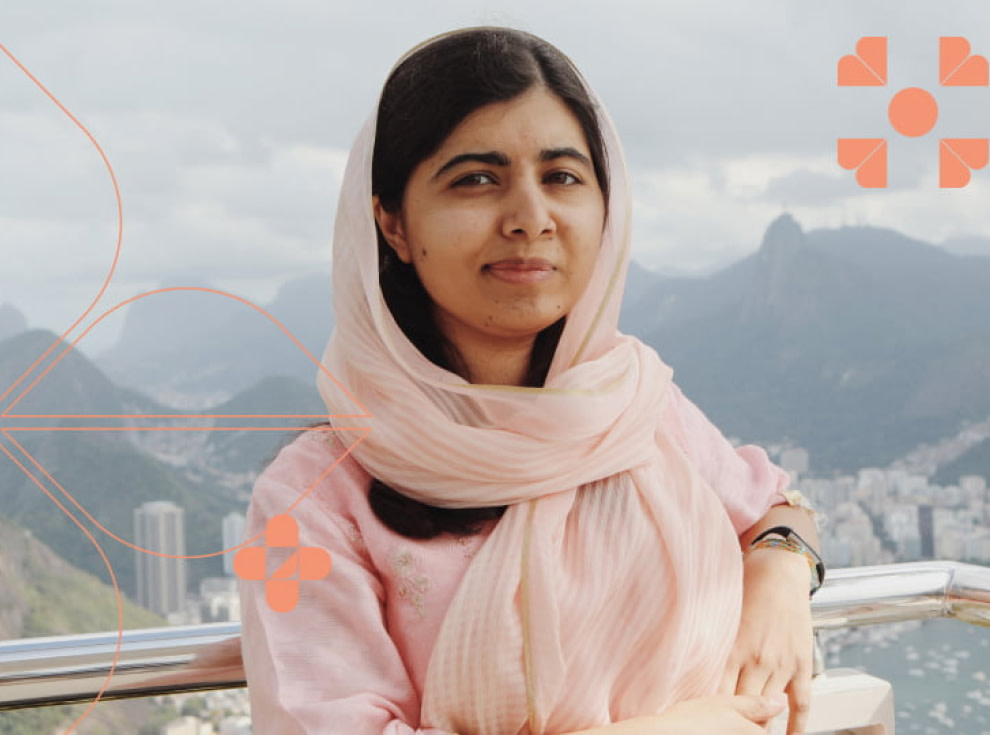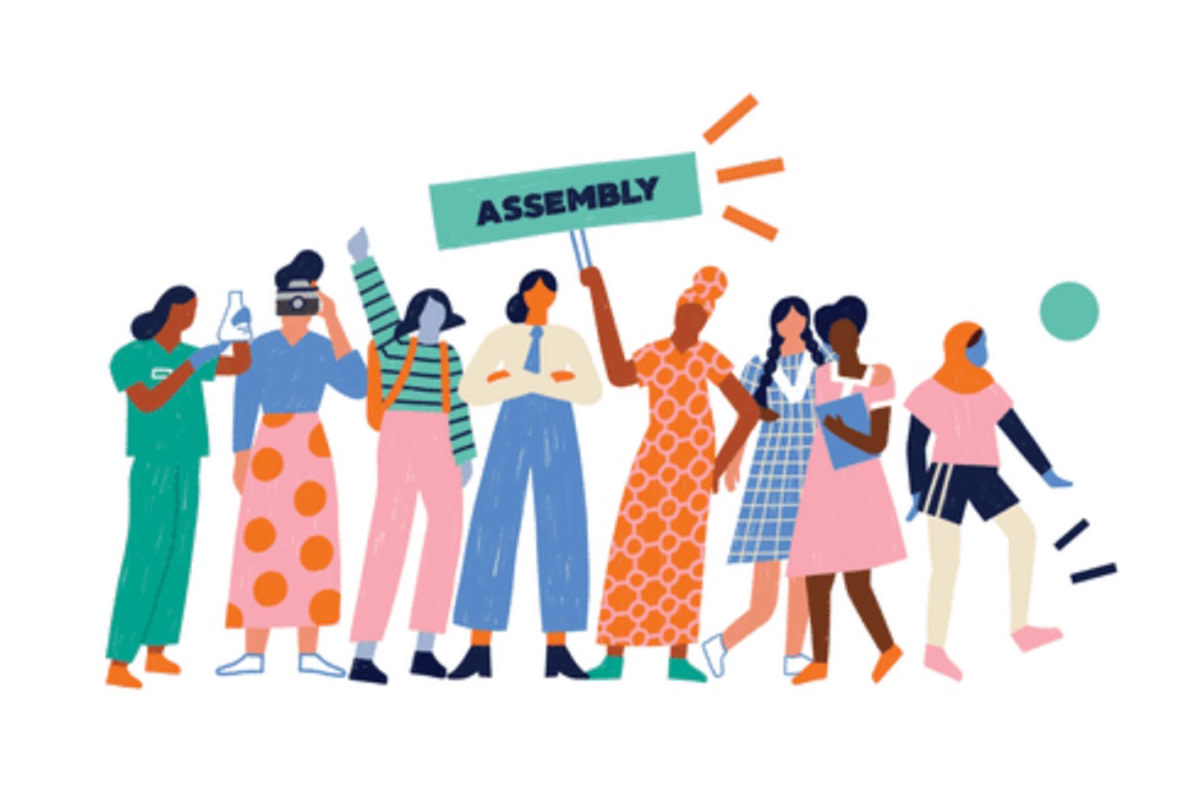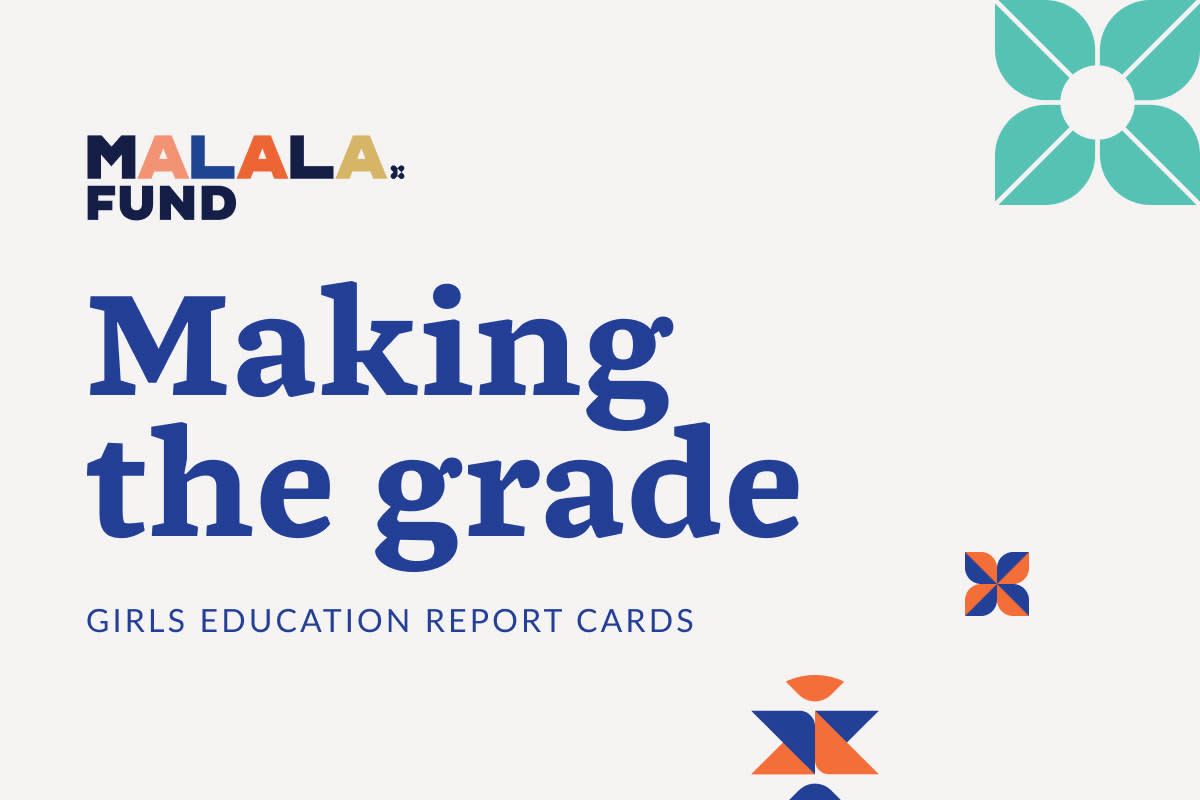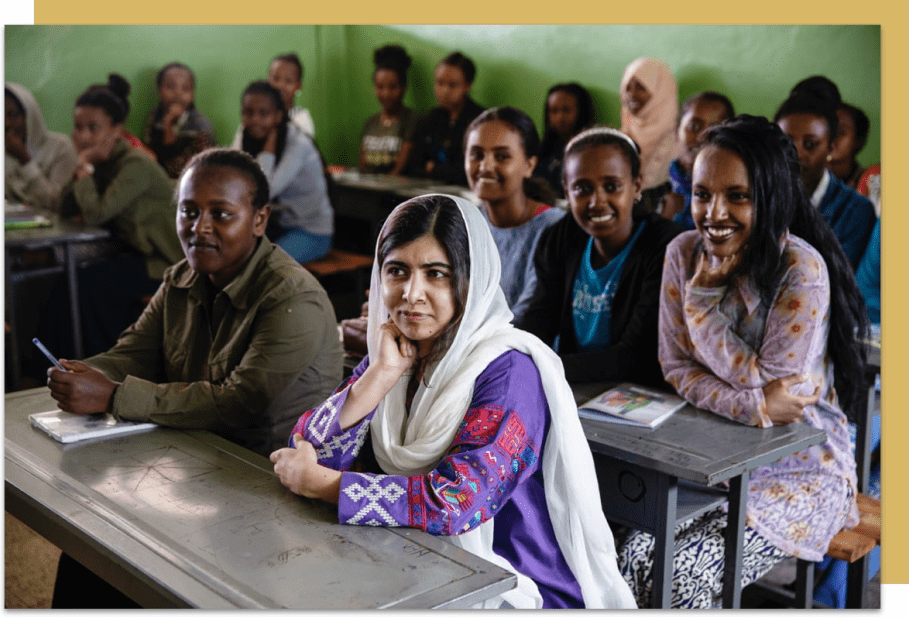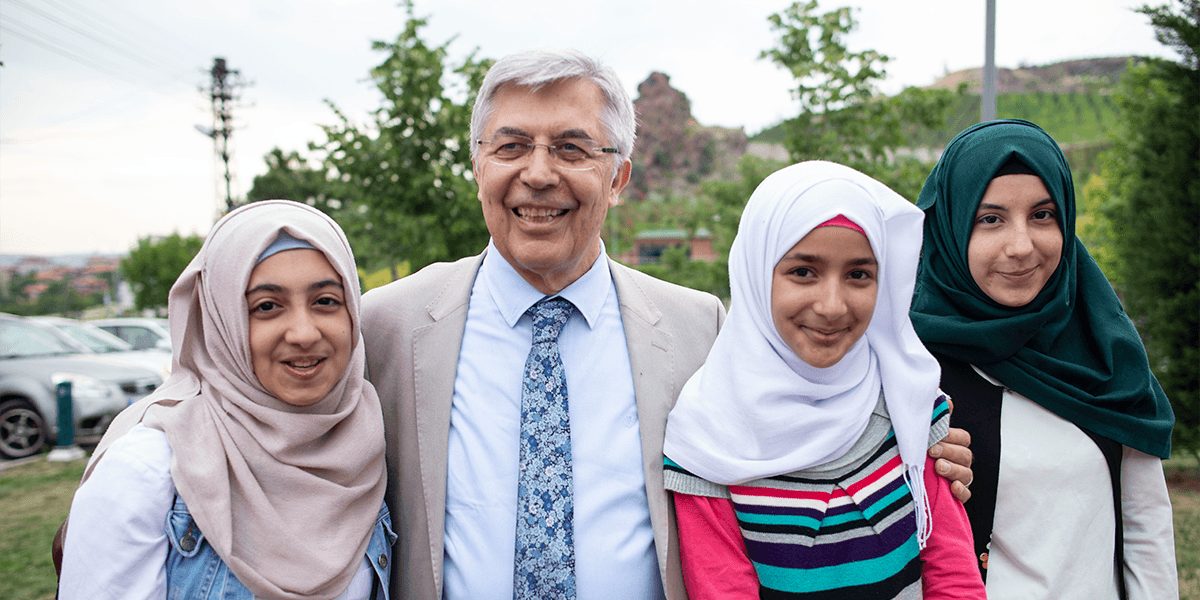
Courtesy of Monique Jaques for Malala Fund
Malala Fund is excited to welcome a brand new cohort of champions — 14 activists from six different countries.
Last year, Malala Fund launched Education Network, an initiative that supports the work of education champions in developing countries — and helps bolster girls’ secondary education around the world.
This week, we’re excited to welcome a brand new cohort of champions — 14 activists from six different countries.
Afghanistan
Zarmina, Managing Director of Watch on Basic Rights Afghanistan Organization (WBRAO)
Zarmina works with Afghanistan’s Ministry of Hajj and Religious Affairs to develop religious materials that promote girls’ secondary education and the protection of teachers. She also engages with the Ministry of Education to recruit female teachers and provide 30 girls’ high schools with water, hand-washing facilities and clean, safe toilets.
Zarqa Yaftali, Director of Women and Children Legal Research Foundation (WCLRF)
Zarqa conducts field research on how Afghanistan’s education system limits girls’ access to the classroom. Across six provinces, her team will interview girls, parents, teachers and education officials. Zarqa will then use her findings to urge the Central Ministry of Education to develop a national action plan to address the systemic barriers preventing girls from completing secondary school.
India
Dr. Jyotsna Jha, Director of Center for Budget and Policy Studies (CBPS)
Jyotsna is developing a mentoring programme that will teach girls critical thinking skills and encourage them to speak out about the issues they witness in their communities. After the programme is piloted in the state of Bihar, Jyotsna will advocate for the model’s integration into school curricula nationwide.
Reeta Kaushik, Secretary of Samudaik Kalyan Evem Vikash Sansthan (SKVS)
At age 28, Reeta founded SKVS to support education for Dalit, Muslim and other marginalised girls in Uttar Pradesh. She is organising a campaign to convince parents to re-enrol their out-of-school daughters. She is also training school administrators to better address the issues female students face and establishing a monitoring system to identify the exclusion of marginalised girls.
Ambarish Rai, Founder and National Convener of Right to Education (RTE) Forum
Ambarish works to strengthen and expand India’s RTE Act. He engages with regional and national government officials to expand the RTE Act to make secondary school free and compulsory. He also advocates to increase government spending on education and add specific provisions in the National Education Policy to support girls’ education.
Rehana Rehman, General Secretary of Navbharat Samaj Kalyan Samiti (NBSKS)
Rehana founded NBSKS to engage Muslim and Dalit girls in non-formal education in Moradabad, Uttar Pradesh. She facilitates conversations between schools and parents to engage them in their daughters’ education. She is also establishing a community-based chaperone programme that will ensure girls’ safety during their long walks to school.
Lebanon
Hiba Hamzi, Education Program Coordinator at Naba’a — Developmental Action Without Borders
Hiba advocates to raise the legal minimum age of marriage to 18, in order to reduce the number of Syrian girls forced into child marriage. To achieve this goal, she lobbies parliament members, ministers, party leaders and religious leaders to lift Lebanon’s reservation to article 16 of CEDAW. She also holds workshops to teach girls about the risks of early marriage and the importance of education.
Nigeria
Abubakar Askira, Director of Programs and Administration at Hallmark Leadership Initiative (HALI)
Abubakar teaches at Yerwa Government Girls’ Secondary School in Maiduguri. He trains community coalition groups to identify the challenges girls face when going to school. After their training, the coalition groups meet with the families of out-of-school girls to discuss the benefits of girls’ education and help them to re-enrol their daughters.
Kiki James, Founder and CEO of Assisting, Caring & Empowering Africans Foundation (ACE Charity)
In the northern states of Adamawa, Borno and Kano, Kiki advocates for the passage of the Child Rights Act, which guarantees children the right to education through junior secondary school. To achieve this, she hosts public forums, creates policy briefs for state governors and works with the Commissioner of Education. She also produces radio segments that promote girls’ education and works with state officials to secure funding for girls’ secondary schools.
Pakistan
Zehra Arshad, Executive Director of Pakistan Coalition for Education (PCE)
Zehra advocates for a constitutional amendment that would increase the standard of free and compulsory education from 10 years to 12 years for all children. To achieve this, she collects evidence on gender gaps in education, trains the media to investigate girls’ education issues and teaches students how to be education activists.
Marium Amjad Khan, Project Manager at Awaz Foundation Pakistan: Centre for Development Services (AwazCDS-Pakistan)
Through targeted media outreach and community organising, Marium campaigns for the Punjab provincial government to create a special fund for girls’ secondary education. Marium will also support a local women-led organisation that breaks down accessibility and socio-economic barriers preventing girls from going to school.
Umme Kalsoom Seyal, Executive Director of Social Youth Council of Patriots (SYCOP)
In Muzaffargarh, Punjab, Umme Kalsoom organises forums and focus groups so community members can provide input on local school plans and discuss the educational needs of their children with the local government. She also mobilises the female elected councillors of Tehsil Muzaffargarh to lead community discussions on barriers to education.
Haroon Yasin, Co-founder and Chairperson of Orenda Welfare Trust
Haroon developed a mobile and web application that streams cartoon versions of standard lessons to children unable to attend formal lessons, making Pakistan’s primary school curriculum more accessible. He is now replicating the programme for lower secondary students. In the Rajanpur and Muzaffargarh districts of the southern Punjab region, he will provide out-of-school girls with the app and help them resume their education.
Turkey
Metin Çorabatır, Founder and President of İltica ve Göç Araştırmaları Merkezi, Research Centre on Asylum and Migration (IGAM)
Metin is creating an education working group to ensure that girls’ education is a priority in the Syrian Regional Refugee and Resilience Plan (3RP). The working group will base its advocacy strategy on the findings from IGAM’s report on the barriers to education that adolescent refugee children face in Turkey. Metin also raises awareness on the importance of secondary education through community outreach to parents and a mobile application with information on refugee services.
Local educators and activists understand challenges in their communities and are best placed to identify, innovate and advocate for policy and programmatic solutions.
Malala Fund believes in these remarkable champions and we’re investing in their work so that every girl can learn and lead without fear.
Learn more about the Education Champion Network at malala.org/champions.
